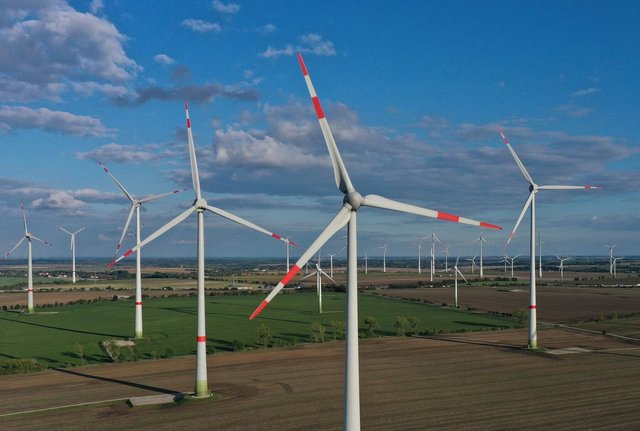
Saijel Kishan
April 23, 2024
In one sense, defining ESG is easy — it’s an approach to finance and investing focused on managing risks from environmental factors, social issues and questions of corporate governance. Sorting out the differences between ESG and similar, sometimes overlapping strategies is harder, in part because the term has come to mean different things to different people. The widespread use of ESG factors has fed skepticism that the approach is nothing more than a marketing gimmick, fueling a backlash and a regulatory crackdown.
1. What’s the big idea?
ESG is part of a wider strategy known as sustainable investing. Broadly, the goals are to achieve societal impact, align with personal values or manage risks, proponents say. ESG was developed about two decades ago by United Nations officials working with the finance industry. They argued that weighing key ESG risks, such as climate change, worker disputes and litigation stemming from poor corporate governance, helps protect investments. Such analysis was compatible with investors’ fiduciary responsibilities, they said.

ESG is part of a wider strategy known as sustainable investing. Photographer: Sean Gallup/Getty Images
2. How has ESG evolved?
As time passed, the ESG label has been slapped on investments that run the gamut from owning green-energy stocks to things you wouldn’t expect, like funds that track benchmark bond indexes containing oil companies or assets in autocratic nations such as Russia. An industry shakeout is now underway. But at the same time, ESG risks have become all the more prominent as extreme weather events and worker strikes have hurt automakers, insurers and travel companies.
3. How big is ESG?
Estimates vary depending on what people define as ESG. According to Morningstar Inc., ESG and sustainability labeled funds had almost $3 trillion of assets at the end of 2023.
4. What’s the backlash about?
In the US, state officials have derided ESG efforts as “woke,” claiming they prioritize liberal values at the expense of financial returns. Florida Governor Ron DeSantis, Texas lawmakers and other critics collectively pulled billions of dollars in state funds from BlackRock Inc., an early champion of the cause. Republican-led states also introduced anti-ESG legislation, though those have largely failed. The attacks sent a chill down Wall Street, prompting banks and investment firms to shy away from using the label in marketing documents and meetings with clients. But then July 2023 ended up being the planet’s hottest month on record, focusing attention on the fallout of extreme heat and wildfires. Historic labor strikes at US automakers also put ESG analysis in the spotlight.
5. What are returns like?
It didn’t help ESG’s cause that Russia’s invasion of Ukraine drove up oil stocks in 2022. While ESG funds recovered in 2023, they mostly underperformed market benchmarks. For example in Europe, which has the biggest market, ESG-related funds rose about 16% on average, compared with the 24% gain of the MSCI World Index and the 16% return of the STOXX Europe 600 Price Index. Still, since at least 2019, more ESG funds have launched than closed, according to research firm Morningstar Direct.
6. What are regulators doing?
As the ESG label was adopted for financial products as diverse as mutual funds to complex derivatives, European and US regulators began to clamp down on firms they said were exaggerating their ESG bona fides.
- In September, the US Securities and Exchange Commission adopted a rule that requires that 80% of a fund’s investments be in line with its stated focus. In 2022, the SEC brought cases against firms, including a Bank of New York Mellon Corp. unit, related to their ESG credentials.
- Deutsche Bank AG’s DWS asset management arm agreed to pay $25 million to settle an SEC probe into alleged greenwashing and anti-money laundering control lapses.
- Revisions to EU rules led fund managers to strip the top ESG tag from about €200 billion ($215 billion) of client funds from July 2022 to March 2023.
7. Does sustainable investing make a difference?
Some investors and academics complain that sustainable investing’s impact has amounted to far less than its supporters suggested. Of course, it has made some strides, such as pressing companies to reduce their plastics use, addressing workers’ rights and performing so-called civil rights audits. They’ve also succeeded in replacing directors on Exxon Mobil Corp.’s board in a bid to help the oil giant position itself toward cleaner fuels. Still, detractors say the idea that sustainable investing alone is enough to address complex problems is being shown to be wrong and that more government intervention is needed to address societal issues such as minimum wages and rising greenhouse gas emissions.
8. What criticism is coming from ESG supporters?
Some supporters think the term has become so broad as to lose much of its meaning. Many point to the prevalence of greenwashing, which is when companies exaggerate the environmental benefits of their actions. Other criticisms focus on the way fund managers rank companies by how they’re performing on ESG factors. There’s a lot of inconsistency in those ratings — in some cases, companies are ranked by the risks that ESG factors pose to them rather than, say, the risks they pose to the environment and society. (Looking at both sides of the equation, an approach known as “double materiality,” has been adopted by the European Union but not elsewhere.) Some proponents suggest getting rid of the ESG label altogether, and instead talking more about energy transition, weather and insurance risks.
9. Where does ESG fit in the sustainability spectrum?
The popularity of ESG has depended in part on a belief that it will play a positive role in making the world a better place. But such warm and fuzzy ideas mean asset managers can blur a key distinction. It was created to pivot away from socially responsible investing and appeal to Wall Street’s focus on risk. That’s a contrast to some other branches of sustainable investment that sometimes go further:
- Ethical and Values-Based Investing: These are broad strategies that enable investors to shun or invest in companies depending on whether they reflect their political, religious or philosophical beliefs and values. Its earliest practitioners were religious groups such as Quakers who shunned investments in things like alcohol, weapons and gambling. Church-affiliated groups in Sweden began the first ethics-based mutual fund in 1965.
- Socially Responsible Investing: Galvanized by anti-Vietnam War protests, consumer boycotts of companies that made napalm and apartheid in South Africa, a group of investors in the 1980s and 1990s sought to do good by not only avoiding companies that harm society but investing in those that are improving their business practices. They also focused on companies engaged in things like green energy.
- Impact Investing: While socially responsible investing tends to focus on publicly traded companies, impact investing largely centers on private projects. It’s a niche strategy where investors target specific outcomes that can be measured, such as companies that provide affordable housing.
© 2024 Bloomberg L.P.


